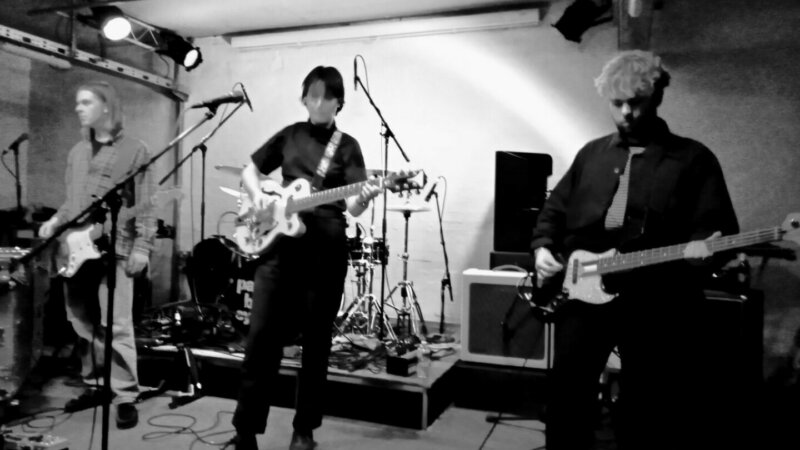Sound
More ramblings on music.
"Rhythm and melody supply imitations of anger and gentleness, of courage and temperance, of all the qualities contrary to these, and of all the other qualities of character. These hardly fall short of the actual affections, as we know from experience, for in listening to such strains our souls undergo a change." Aristotle.
"Music is thought to have an affinity with dancing, and a good hand upon instruments is by many people mightily valued. But it wastes so much of a young man's time to gain but a moderate skill in it, and engages often in such odd company, that many think it much better spared." John Locke.
Music is everywhere in today's society. There is music in bars and pubs, music in bus depots and airport departure lounges, even music pumped onto the top of The Moor outside Debenhams. There are popular genres of music whose names themselves are prescriptive of the mode of listening - chill-out music, for example, or even dance music. This is music presented as recreational, perhaps as an accompaniment to or distraction from activities we regularly engage in. Yet those in positions of power to influence our aural environment acknowledge the deeper effect which musical sounds have on us; the airline plays music to relax people during the often frustrating experience of air travel; the bar plays music to energise us and sometimes to halt conversation, making us spend more on drinks. Essentially, music is often used in a way which on face value has the importance Locke accredits to it, yet it is broadcast by those who understand the power Aristotle ascribes to it, often as a method of controlling or influencing us.
Governments and dictators throughout history have controlled musical environments in order to further a political agenda. Most striking is Hitler's adoption of Wagner as a musical justification for discrimination against the Jewish people. Hitler realised the emotive power of Wagner's opera, apparently being reduced to tears whilst listening to 'The Ring Cycle'. Yet by misinforming those with minimal musical education as to the subtext of the opera, he was able channel their powerful emotional response towards the reinforcement of opinions quite absent from the music itself. Wagner was almost certainly anti-semitic, but there is nothing in the libretto voicing these opinions, and to ascribe a written subtext to the musical content of the opera is to defeat the unclosing dialogue, inherent to music, which gives it power in the first place.
People would be less able to exploit music if it was given more attention during education. The national curriculum increasingly favours the essentials of reading, writing and arithmetic in primary education, stating (perhaps correctly) that these are the most important skills for a young person to hold if they wish to be successful in today's society. But with budget cuts inevitable and music a low priority and expensive to teach, it seems its decline will continue. Musical learning may not be an obvious ingredient in creating an economically successful young person - which seems increasingly these days to be the only measure of whether someone is succeeding - but to believe that music is merely an end in itself is to ignore the parallels between musical structures and other aspects of life - the way that involvement in it can inform us of ways to progress through life as well as through a piece of music.
A striking example of music's power to influence other aspects of our character is the West-Eastern Divan Orchestra, a project of acclaimed conductor Daniel Barenboim bringing together young musicians from countries across the Middle East - Israelis, Palestinians, Syrians, Lebanese, Egyptians - and others from the Western countries that host the orchestra. Many of these young people have had hatred for one another instilled in them from an early age, and their parents and even peers have engaged in brutal wars against each other. Yet to play music together there is a requirement for them to listen to each other, at first perhaps just in the rehearsal room but gradually in their social lives too. The multi-directional, unending dialogue that playing orchestral music demands becomes reflected in their personal interactions, with grudges and hatreds instilled over generations dissipating in weeks. Barenboim argues that understanding music develops by necessity the mind's capacity to strike balance, that it makes glaringly obvious the folly of someone playing their own part whilst disregarding those of others. He extends this metaphor to encompass what he sees as the primary stumbling block in trying to strike up a peace treaty in the Middle East; all involved parties are playing their parts loudly to the world whilst disregarding those of their neighbours. This is a simplistic way of viewing a complex process, but a resonant one nonetheless.
Playing music in an ensemble is the only time in formal education where I can remember my whole class simultaneously working together towards achieving something. Other subjects are obviously essential to personal development, and are rightly prioritised in a society in which interpersonal competition, rather than cooperation, is realistically the economic driving force. But we are already, like Locke, neglecting music's role in developing communication skills applicable in all walks of life. )





